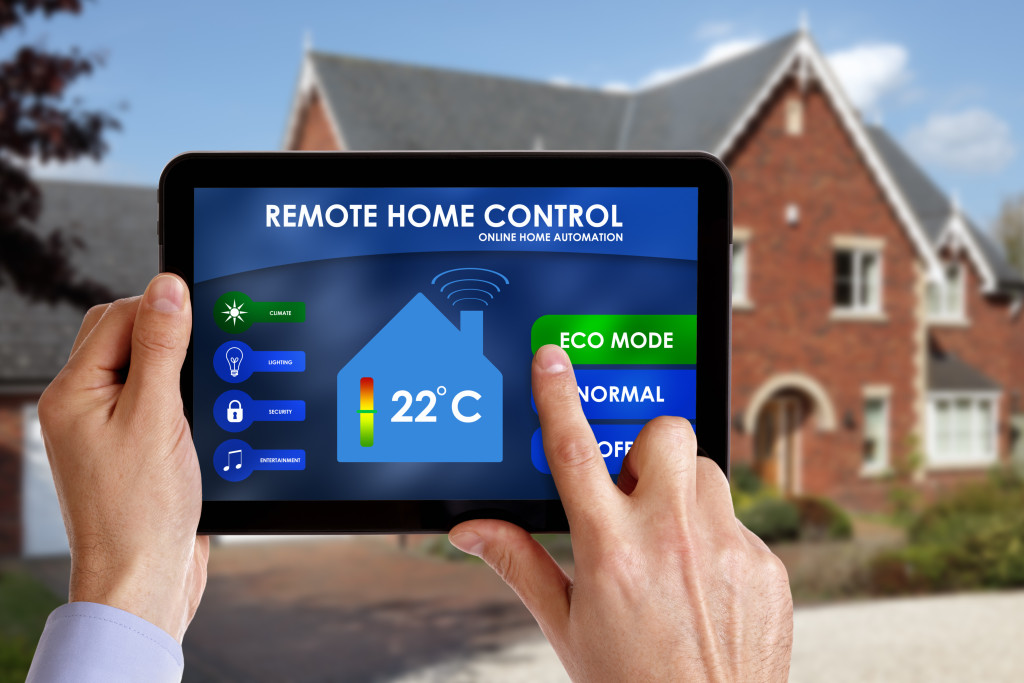• Smart homes will become more commonplace in 2023, with features such as automated climate control, door locks, and energy efficiency.
• Developers must focus on eco-friendly buildings to meet the increasing demand from consumers while helping to protect the environment.
• Remote work opportunities have increased due to the pandemic, requiring developers to create spaces to cater to this trend.
• Data analytics and AI integration will help developers make better-informed decisions about their properties.
The real estate industry is constantly changing and evolving, and that’s why it’s so important for developers to stay up-to-date with the latest trends. From increasing demand for eco-friendly buildings to advances in virtual reality technology, there are some exciting changes for real estate development in 2023. Here’s a look at what the future holds.
Smart Homes Will Become More Commonplace
The idea of living in a “smart home” has been around since the early 2000s, but it wasn’t until recently that the technology became affordable enough for widespread adoption. This trend is expected to continue throughout 2023 as more developers integrate innovative home features into their projects.
For example, smart homes can automatically control your air conditioning and lighting to lock your doors at night. They can also provide energy efficiency benefits as well as convenience.

Rise of Eco-Friendly Buildings
As consumers become more aware of their environmental impact, they increasingly demand eco-friendly buildings. This means that developers must focus on creating structures that use sustainable materials and efficient energy sources such as solar or geothermal energy. Both options give homeowners reduced expenses over time, making them attractive.
It also means that developers must pay attention to water conservation efforts such as rainwater harvesting and greywater recycling systems. By incorporating these elements into their projects, developers can create more attractive properties while helping protect the environment simultaneously.
Additionally, the materials used to build a home have also changed. Concrete is still a great option considering that it’s strong and durable. However, a sustainable concrete contractor can utilize sustainable ways to make concrete. Some ways include using recycled materials, reducing water consumption, and using less energy overall.
Remote Work Opportunities
With so many people working from home due to the pandemic, remote work opportunities are becoming increasingly popular among businesses and employees. This means that real estate developers will need to start thinking about how they can create spaces that cater to this growing trend.
Think virtual offices with co-working spaces and private rooms for meetings; modern amenities such as high-speed internet; and flexible leasing options that allow businesses to scale up or down depending on their needs.

Data Analytics & AI Integration
Data analytics has become an integral part of business decisions today — especially in commercial real estate. With the help of data analytics software, developers can track performance metrics such as occupancy rates and tenant satisfaction scores to make better-informed decisions about their properties. Additionally, AI integration is becoming increasingly popular among developers who want to automate specific business processes. By leveraging artificial intelligence technology, developers can save time on mundane tasks such as marketing campaigns or tenant screening processes while freeing up resources for more strategic projects like property management or customer service initiatives.
BIM
Building Information Modeling (BIM) is a technology that has been around for some time but is only now becoming increasingly popular.
BIM allows developers to create 3D models of structures which can be used to monitor construction progress, track changes in design, and collaborate with other professionals involved in the project. It makes it easier to reduce costs while creating more efficient and precise construction processes.
Advances in Virtual Reality Technology
Virtual reality (VR) technology has made tremendous strides over the past few years, and this trend is expected to continue into 2023 and beyond. Developers are using VR technology to give potential buyers an immersive experience of a property before they even step foot inside it—allowing them to get a better sense of what it would be like living there without ever having to leave their homes. Additionally, VR technology can be used by developers during construction projects by allowing them to quickly review design plans in a 3D environment or simulate how different building materials will interact with each other once they are installed onsite.
In summary, some exciting new trends are coming down the pipeline for real estate development in 2023. Developers who stay ahead of these trends will find themselves well-positioned to capitalize on these opportunities—and give potential buyers a fantastic experience along the way!

